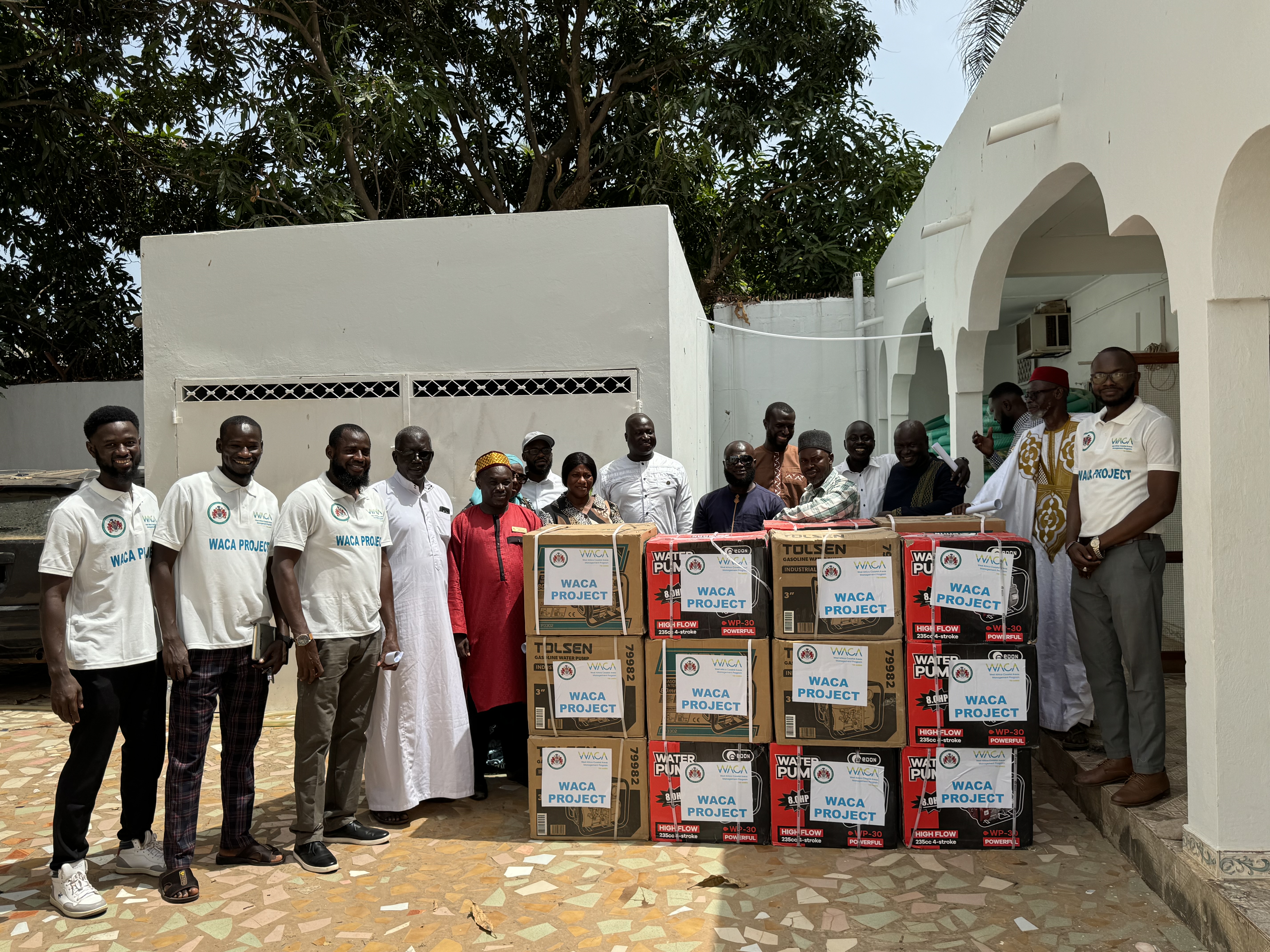News |
WACA Gambia Project delivers 34 floodwater pumps to communities
WACA Gambia handed over 34 floodwater pumps to the National Disaster Management Agency and local authorities for high-risk communities in Kanifing and Brikama.
The machines include 30 portable pumps with a capacity to pump 60,000 liters of water in an hour for the 11 communities along the Kotu Stream and four heavy-duty machines with a capacity to pump 522,000 liters of water in an hour: two for the National Disaster Management Agency and one each for Kanifing Municipal Council and Brikama Area Council. The pumps were handed over at a ceremony held at the WACA offices in Kanifing.
The Permanent Secretary, Ministry of Environment, Climate Change and Natural Resources, Ebrima Jawara, who presided over the event, described the delivery of the machines as a big “relief to communities” that are highly vulnerable and suffer from perennial flooding.
The delivery of the floodwater pumps is part of the WACA Project’s short-term interventions, which also include clearing the entire length of the Kotu Stream of waste and vegetation, desilting the stream, clearing the numerous illegal dumpsites along the stream, and connecting 3 kilometers of drains to the stream to reduce the risk of flooding.
“All these flood risk mitigation measures are a direct response to the appeals of communities and local authorities during our extensive consultations with our stakeholders and community engagements in our project intervention area,” said Masanneh Landing Ceesay, the Project M&E Specialist, speaking on behalf of the Project Coordinator.
For several months, the project team has been holding direct discussions with the project beneficiaries, local authorities and institutions to inform them about the project’s development objective and activities and solicit their views and urgent needs ahead of the rainy season.
The chairman of Brikama Area Council, Yankuba Darbo, commended the WACA Project for providing communities and local authorities with the essential pumps to prepare for the rainy season. He said clearing the Kotu Stream will “facilitate stormwater flow during the rainy season and minimize the risk of flooding and thereby protecting lives and livelihoods”.
The Executive Director of the National Disaster Management Agency, Sanna Dahaba, explained that the floodwater pumps “will go a long way in strengthening the resilience as well as mitigating the risks and vulnerabilities of communities in the country.”
As a follow up to the delivery of the pumps, the project will undertake additional measures to better support communities’ resilience to floods and national disaster risk reduction. The project will train volunteer operators and develop an operational manual for the pumps. The project will also invest in communication on early warning systems.
“In the next few days, we will be working with the National Disaster Management Agency to kick off a robust awareness raising campaign on early warning systems, disaster risk management and resilience building targeting vulnerable communities,” Mr Ceesay said.
The handover event was also attended by Ward Councilors representing communities in the project intervention area, community leaders, implementing partners and others.
The West Africa Coastal Areas Resilience Investment Project, or WACA ResIP 2 is part of the West Africa Coastal Areas Management Program (WACA) – a regional program funded by the World Bank and implemented in 9 countries, namely: The Gambia, Benin, Côte d'Ivoire, Ghana, Guinea-Bissau, Mauritania, Sao Tomé and Principe, Senegal, and Togo.
In The Gambia, the project was launched in May 2023 for a period of five years (2023 – 2027). It is implemented by the Ministry of Environment, Climate Change and Natural Resources. The project is designed to restore and reprofile the Kotu Stream, a land area of 1,881 hectares stretching 11.2 Km from Nema Kunku to Kotu on the Atlantic Ocean. An estimated 201,044 people were living along the Stream as of 2020. The project also aims to strengthen national policies and institutions and build the resilience of communities.
